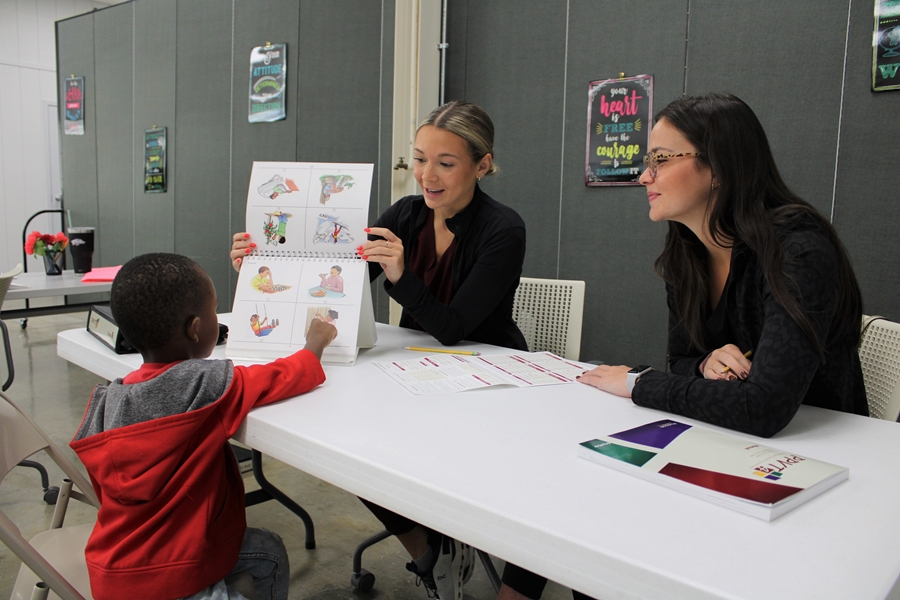
For more than five years, graduate students in the Communication Sciences and Disorders Program have partnered with local Head Start centers to provide essential services to children across Washington County.
The partnership is through a service-learning course led by Lisa Bowers, an associate professor and graduate program coordinator in CDIS. Graduate students training to become speech-language pathologists evaluate the language, motor, and vocabulary skills of preschool-age children who attend local Head Start centers.
Service learning courses align academic coursework with learning experiences that benefit the community. "This course offers significant benefits for our U of A graduate students and the children, teachers, and administrators at our community Head Start centers," Bowers said. "This partnership has strengthened connections between groups within the community, the university, and future SLPs."
Graduate students gain valuable experience working with young children and observing classroom settings in various centers throughout Washington County. And the centers can complete screenings in a timely manner.
Lynn Troutner, the disability services coordinator for EOA Children's Services, said the program's graduate students have been instrumental in helping the centers meet federal 45-day screening requirements. "Their level of professionalism has been stellar, even when they encounter children who experience difficulty in new situations with unfamiliar adults," she said. "Head Start is truly grateful, beyond my expressed words, for Lisa's coordination of this annual experience."
Bowers said the partnership has been transformative for her graduate students. "It has been such a positive experience for our graduate students as they interact with educators and children from diverse backgrounds in our community," she said. "They develop an understanding of how to engage with children as young as two years old to assess their conceptual, language, motor, and social development. It is a highlight for me each year to read their personal reflections as each student describes how they have grown personally, academically, and professionally from this experience."
Student Mallory Carr said she's grateful for the incredible opportunity. "The best way to understand and grow as a future clinician is to engage with your surrounding community and serve them where needed," she said. "Academically, this experience has really enhanced my skills and knowledge of early childhood development and the sequence in which we see children grow."
Student Emily Ortiz said the professional and personal lessons deepened her knowledge. "I have learned so many things that I will be able to apply professionally to better serve my future clients," she said. "I have learned to be patient with clients and that it is okay if things do not go according to plan. It is my job to be flexible and look for signs that a child may need a break for a little bit or may not be in a good mood at that particular time." Ortiz said her time at Head Start centers also reinforced the importance of her role. "Most importantly, I have learned that language and literacy are crucial and should be tested early on to make sure the child has a solid foundation set for the future," she said.
The Service-Learning Initiative facilitates strategic community partnerships and offers pedagogical support for new faculty teaching service-learning courses, including course design. Members of this committee include representatives from each college on campus, the Honors College, the Center for Community Engagement, Graduate School and International Education, the School of Law, University Libraries, and the Wally Cordes Teaching and Faculty Support Center, which is instrumental in connecting faculty and staff from these various campus organizations.
For more information about service-learning offerings and potential partnerships, contact Carrie Nelms (cnelms@uark.edu), Jennie Popp (jhpopp@uark.edu), Shalini Rana (svclrn01@uark.edu), or visit the service learning website. The Communication Sciences and Disorders Program is in the College of Education and Health Professions.
Topics
Contacts
Shannon G. Magsam, director of communications
College of Education and Health Professions
479-575-3138,